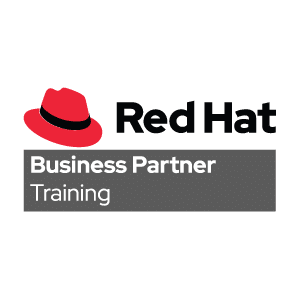Configure and manage OpenShift clusters to maintain security and reliability across multiple applications and development teams.
Red Hat OpenShift Administration II: Operating a Production Kubernetes Cluster with exam (DO281) prepares OpenShift Cluster Administrators to perform daily administration tasks on clusters that host applications provided by internal teams and external vendors, enable self-service for cluster users with different roles, and deploy applications that require special permissions such as such as CI/CD tooling, performance monitoring, and security scanners. This course focuses on configuring multi-tenancy and security features of OpenShift as well as managing OpenShift add-ons based on operators.
The skills you learn in this course can be applied using all versions of OpenShift, including Red Hat OpenShift on AWS (ROSA), Azure Red Hat OpenShift, and OpenShift Container Platform.
This course is based on Red Hat® OpenShift® 4.14. The Red Hat Certified OpenShift Administrator exam (EX280) is included in this offering.









